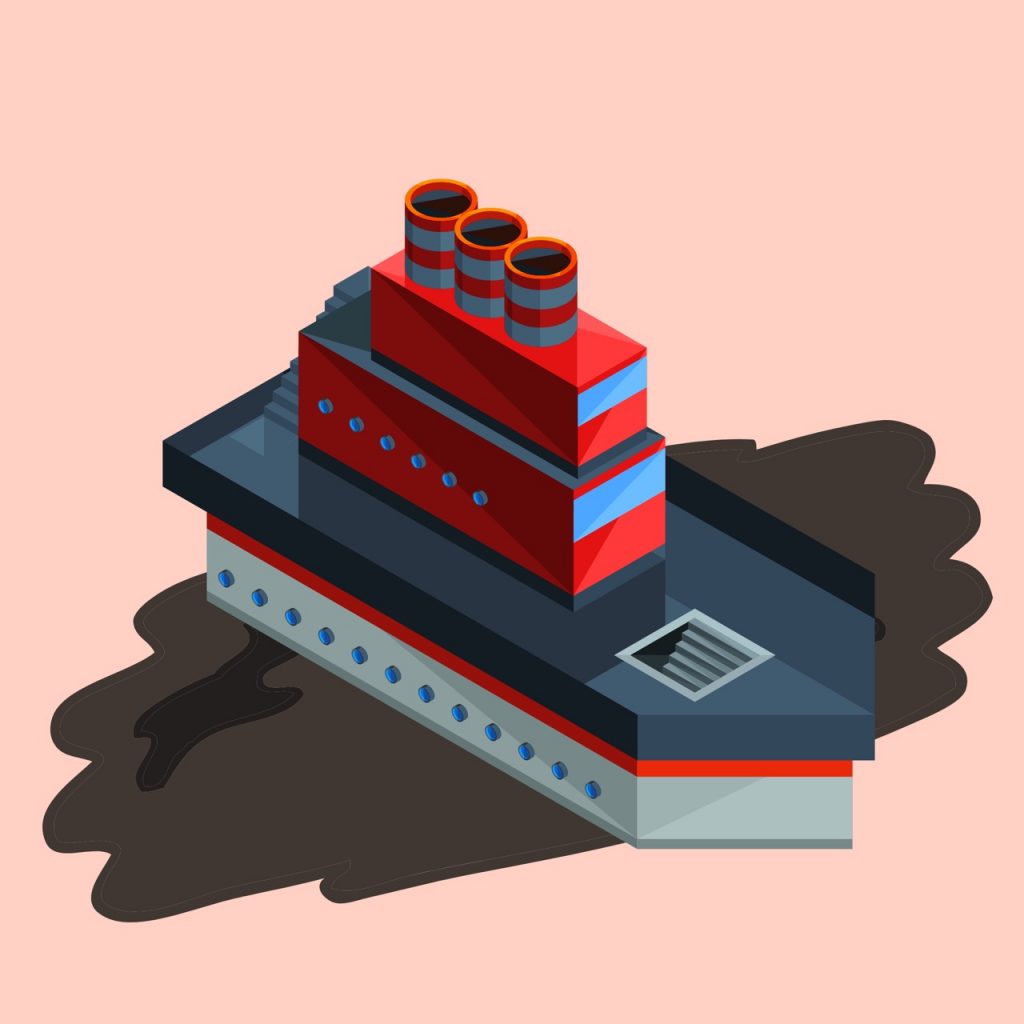
Achraf El Madnaoui reports on the oil spill in Mauritius, the dangers it poses to marine ecosystems and how the country has been containing it.
By Achraf El Madnaoui Credit: The Myriad News
A stranded Japanese ship located near the coast of Mauritius has been leaking substantial amounts of oil into the pristine Indian Ocean. CNN reports that the ship has already leaked about 1,000 metric tons of oil. Though a clean-up operation is in progress, Mauritian coast guard and police units fear that the ship’s firm upward positioning may break it into two. An outcome like this would release thousands of more tons of fuel into the coastal lagoon.
Mauritius government pressured to remove and transfer oil
Prime Minister Pravind Jugnauth has affirmed that the salvage teams have removed all of the oil from the ship’s fuel reservoirs, albeit a small amount remains onboard elsewhere. The collected fuel has been safely transferred to another ship.
The underlying concern remains: when will the ship split?
“The way the leakage and the break in the ship are increasing, there is a huge probability that this ship will break into two. And we still have around 2,500 metric tons of fuel on the tanks of the ship,” says Sunil Dowerkasing, a former strategist for Greenpeace International. Dowerkasing notes the timely nature of the salvaging operation is the “immediate danger.”
Greenpeace Africa has further warned that thousands of marine species are “at risk of drowning in a sea of pollution, with dire consequences for Mauritius’ economy, food security, and health.” Various volunteer groups have thus begun taking action to limit the spread of the spill.
“Me and my friends came here today to lend a hand because of the degradation of our environment,” says Eldridge Larhubarbe, an environmental management student. “The entire marine ecology has been affected by the heavy oil spilled from the ship. We are very affected by this problem. As young people, it is our main priority to protect our lagoon.” Larhubarbe, along with many other youth volunteers, has been helping build improvised floating booms from fabric and stuffing them with straws and sugarcane leaves.
On Friday, the government declared the spill a national emergency.
Experts assess the current impacts
Conservationists and environmentalists at the scene say it is too early to predict the extent of environmental damage caused. It is foreseeable, however, that the spillage will spread to nearby marine ecosystems.
Given that Mauritius is a biodiversity hotspot, the probability that the spill is wide-spread is very likely. Former Greenpeace strategist, Sunil Mokshananda, asserts that “the wind and the water currents are not helping” and that they are instead “taking the oil towards the areas that have vital marine ecosystems.”
In regards to civilian life, it is patently clear that local citizens will see drastic changes to their livelihoods. Vikash Tatayah, conservation director of the Mauritian Wildlife Foundation, says that “people are furious that this has happened” and that “thousands and thousands of people will be badly affected by this wreak.”
I think it is safe to say that the Mauritius oil spill will have long-standing consequences on the marine environment in East Africa.
